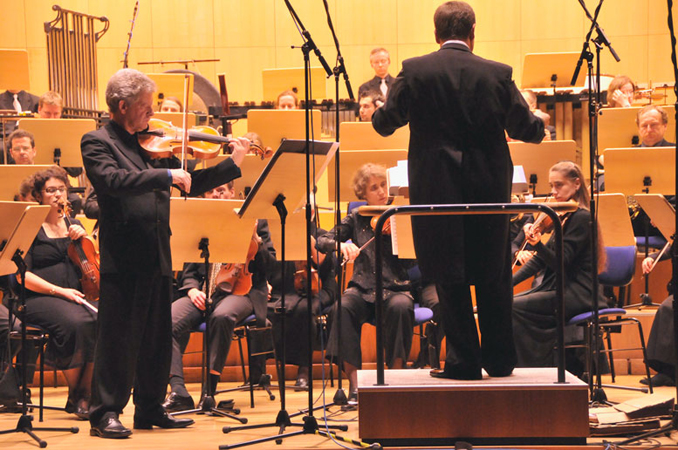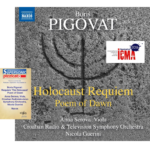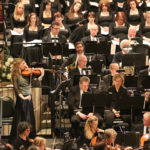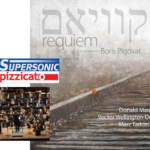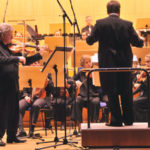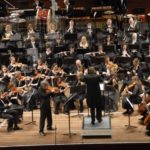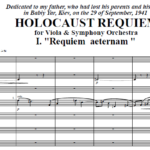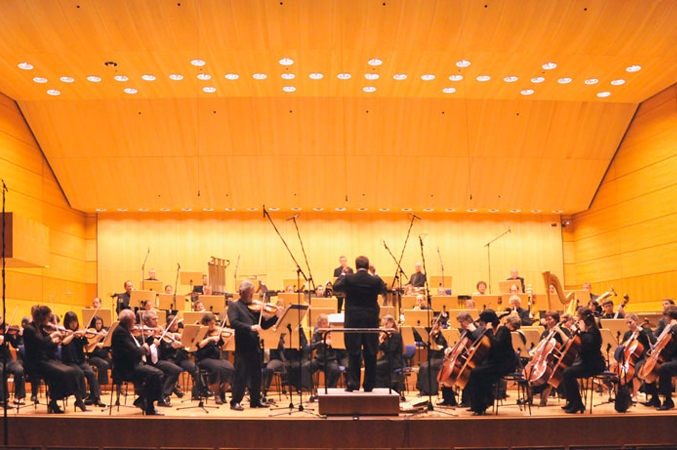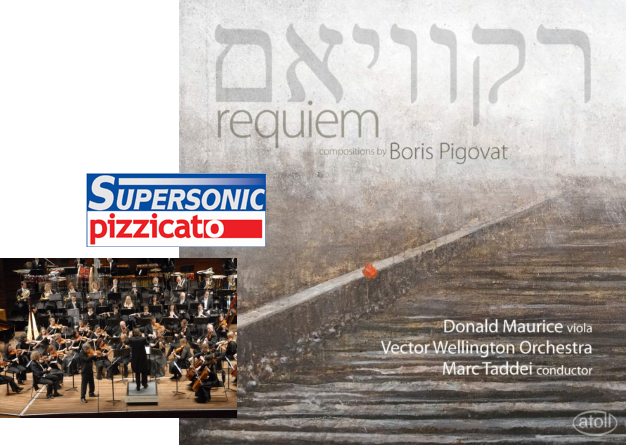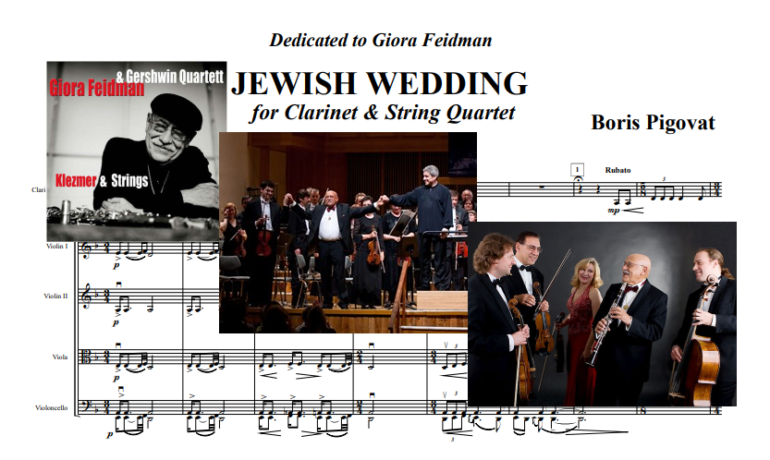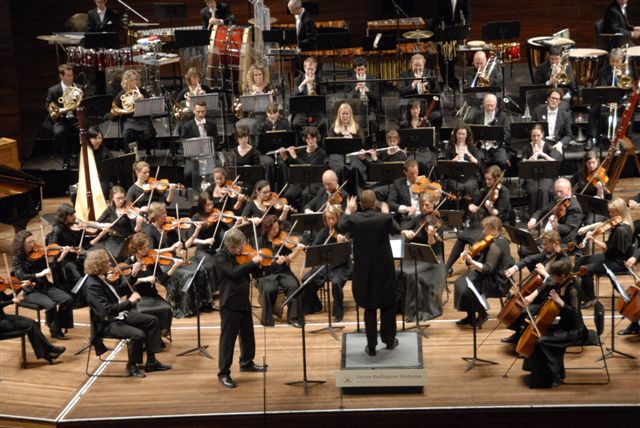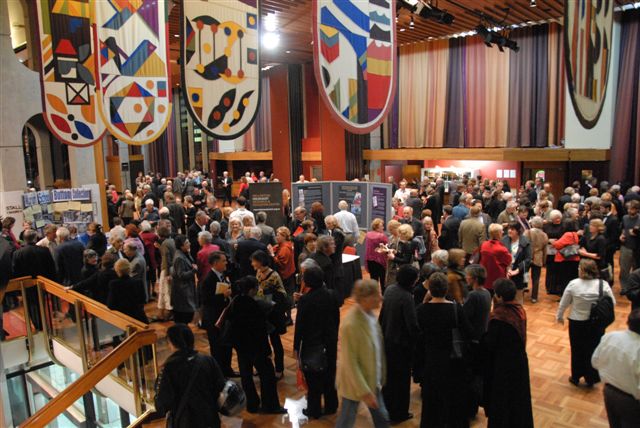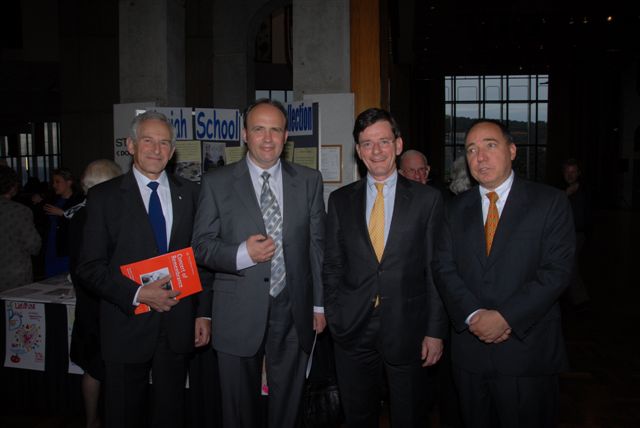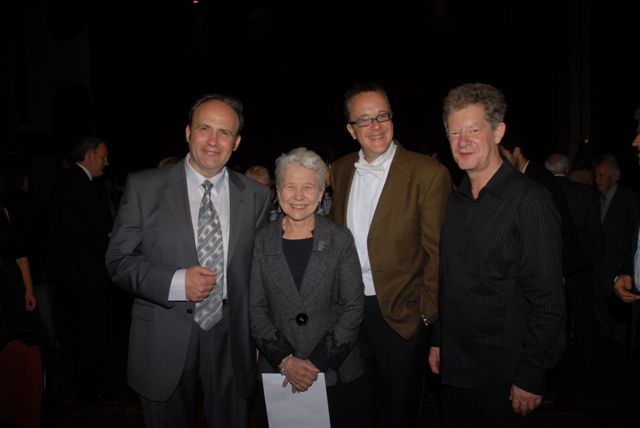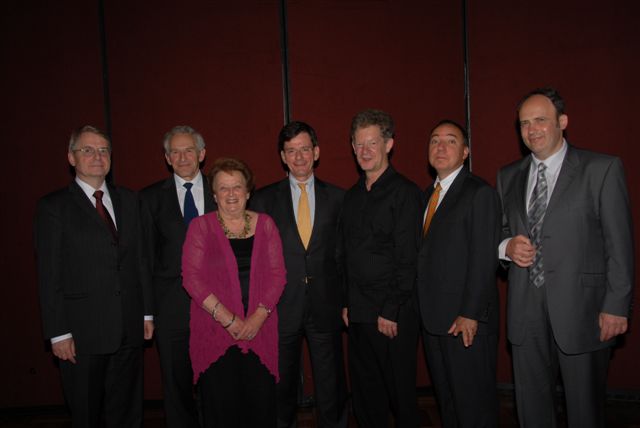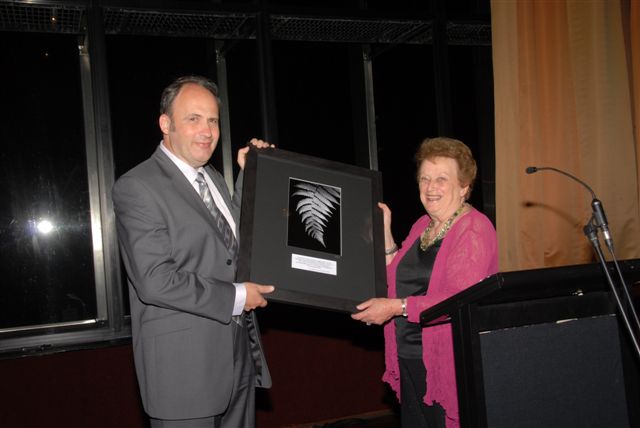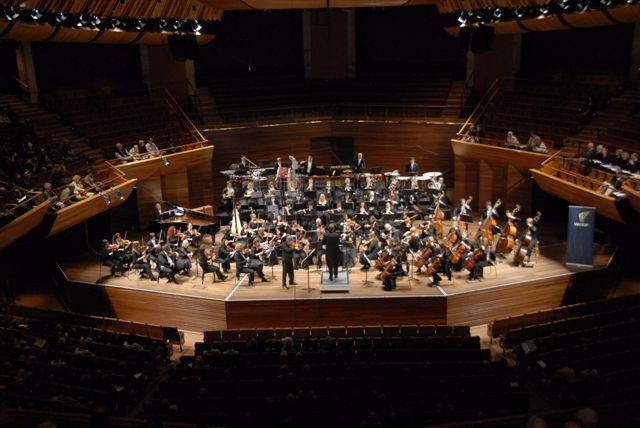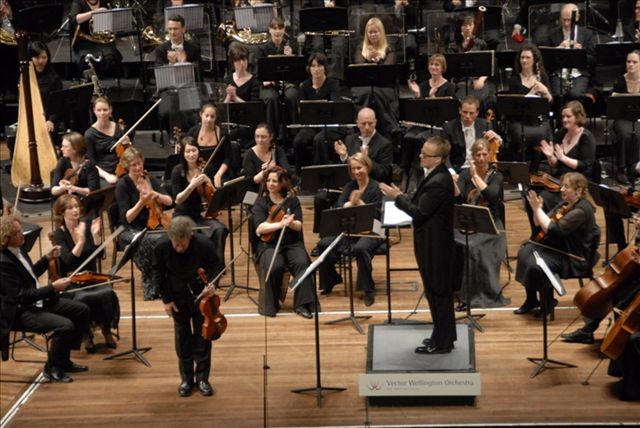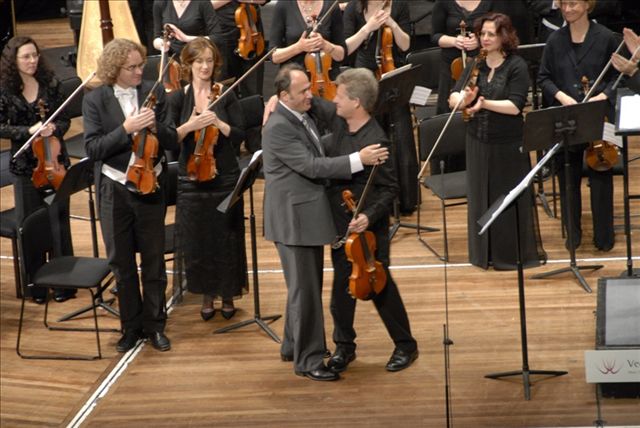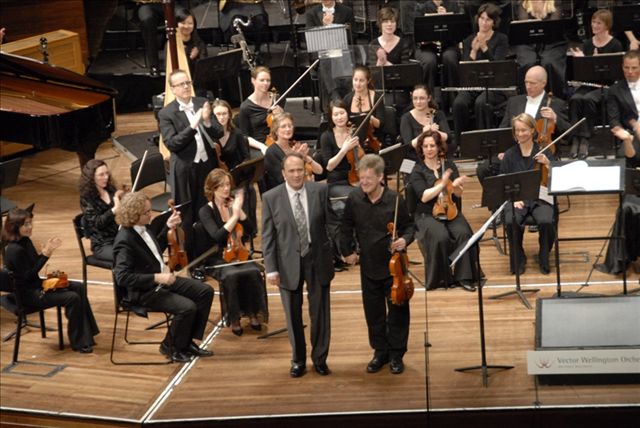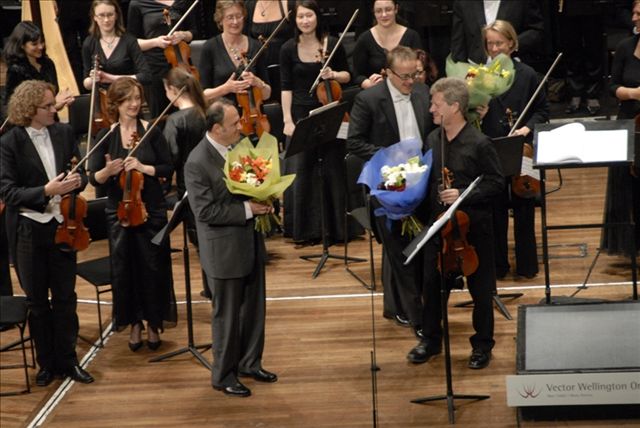Viola Congress at 2011 was the third time when Donald Maurice performed Requiem, after his great performance at the Concert of Remembrance for 70th the Anniversary of Kristallnacht.
Donald received an invitation to give the work’s first-ever performance in Germany, on October 15th at the final gala concert of the International Viola Congress in Wuerzburg.
The performance commemorated the 70th anniversary of the Babi Yar massacre, and featured Donald, with the Camerata Louis Spohr orchestra from Duesseldorf, conducted by Bernd Peter Fugelsang.
Below are some photos from the event, kindly given to me by Dwight Pounds.
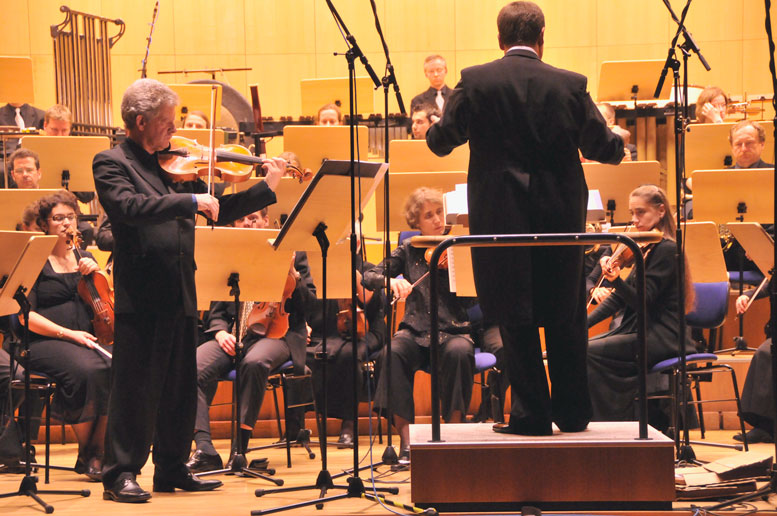
Donald Maurice (Viola) and "Camerata Luis Spohr", conductor – Bernd Peter Fugelsang
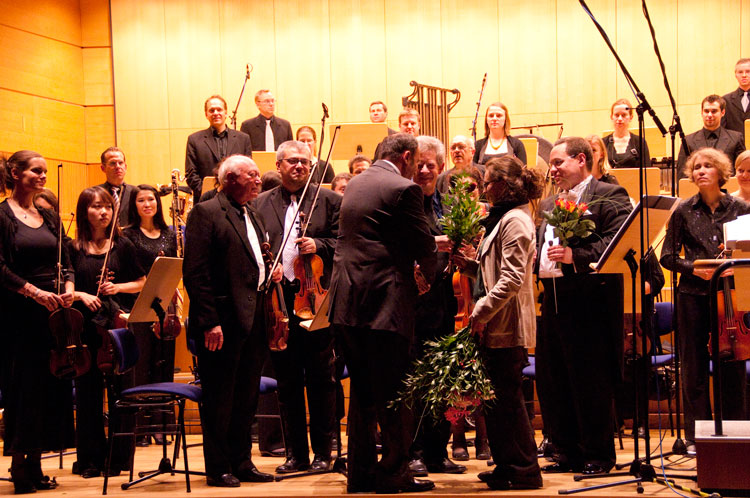
After performance, Boris Pigovat and Donald Maurice
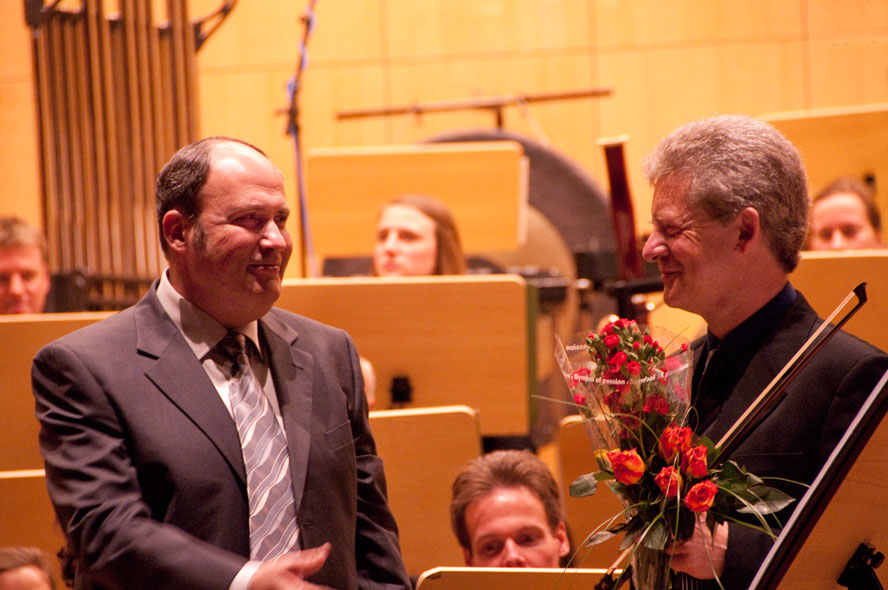
After performance, Donald Maurice and Boris Pigovat
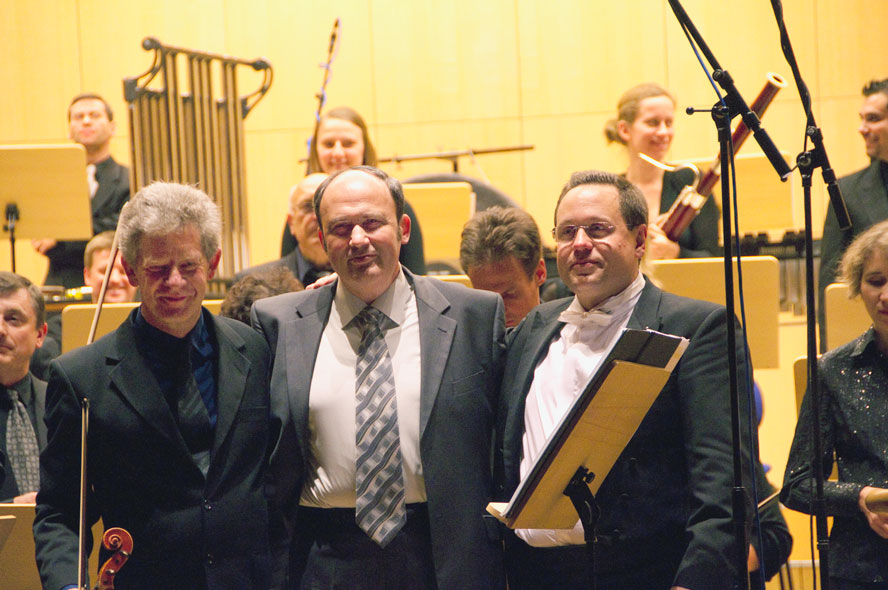
Donald Maurice, Boris Pigovat and Bernd Fugelsang
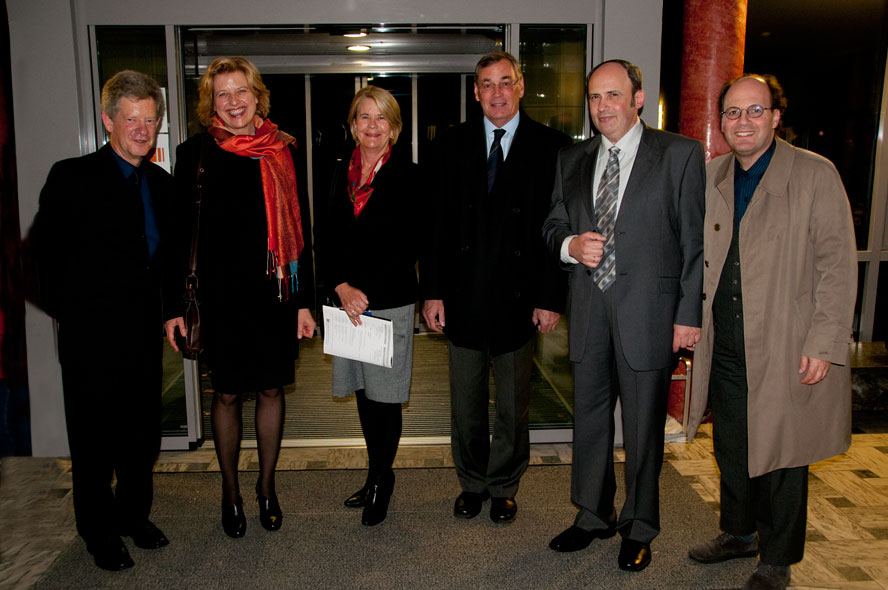
Donald Maurice, Karin Wolf (Congress Host), Louise Rider, Peter Rider (NZ Ambassador), Boris Pigovat (Composer) and Emile Cantor (Congress Host)
